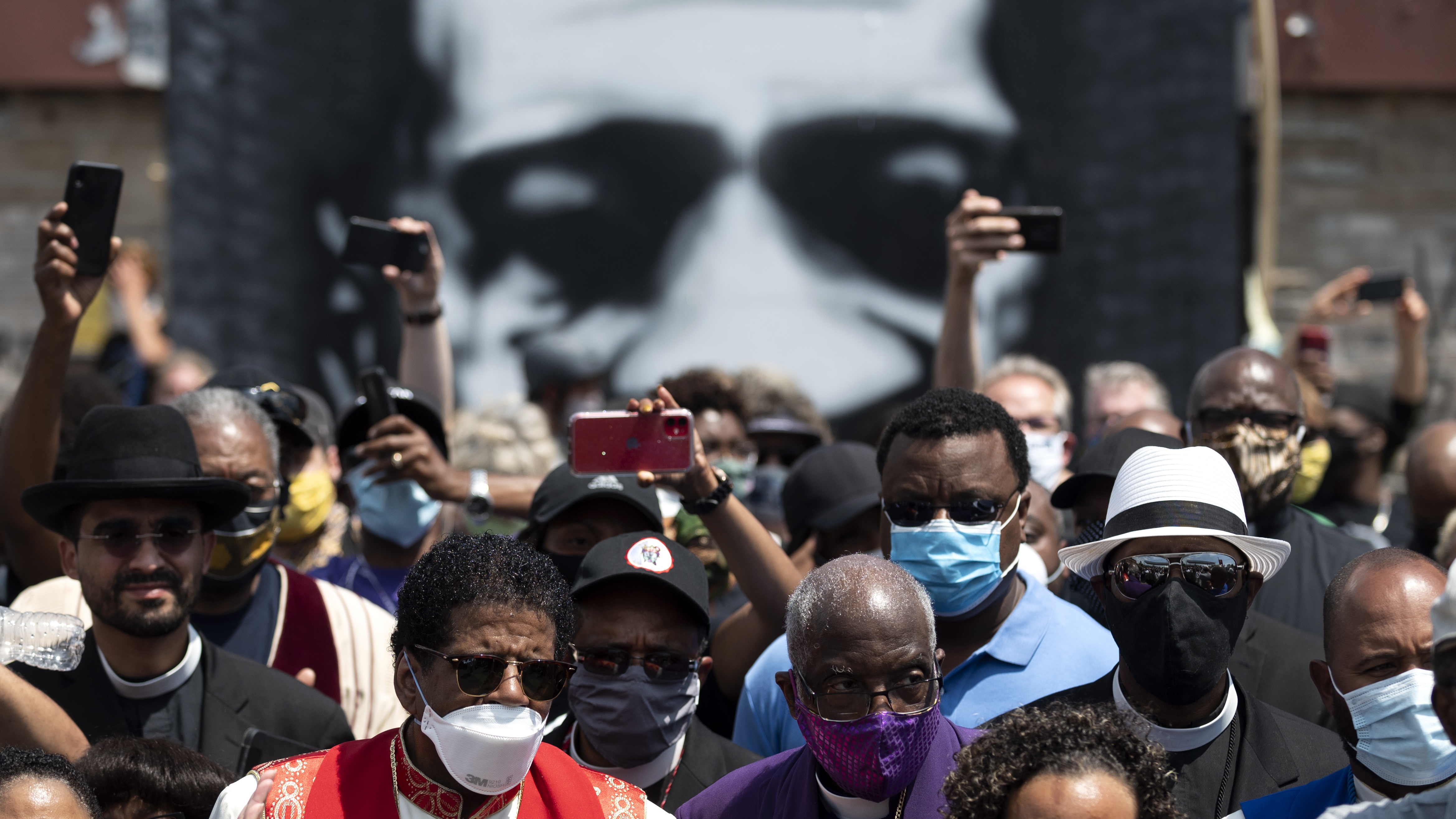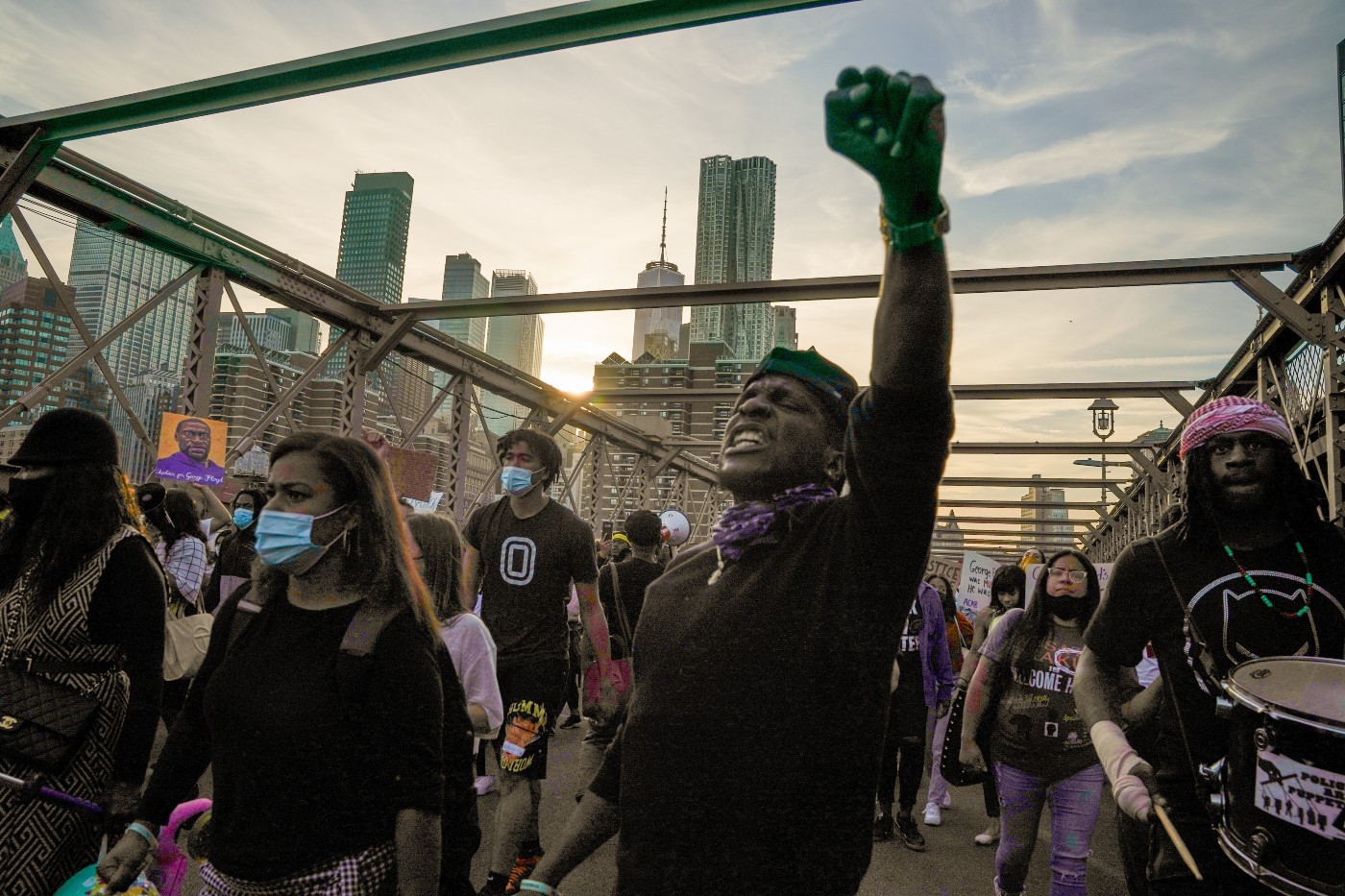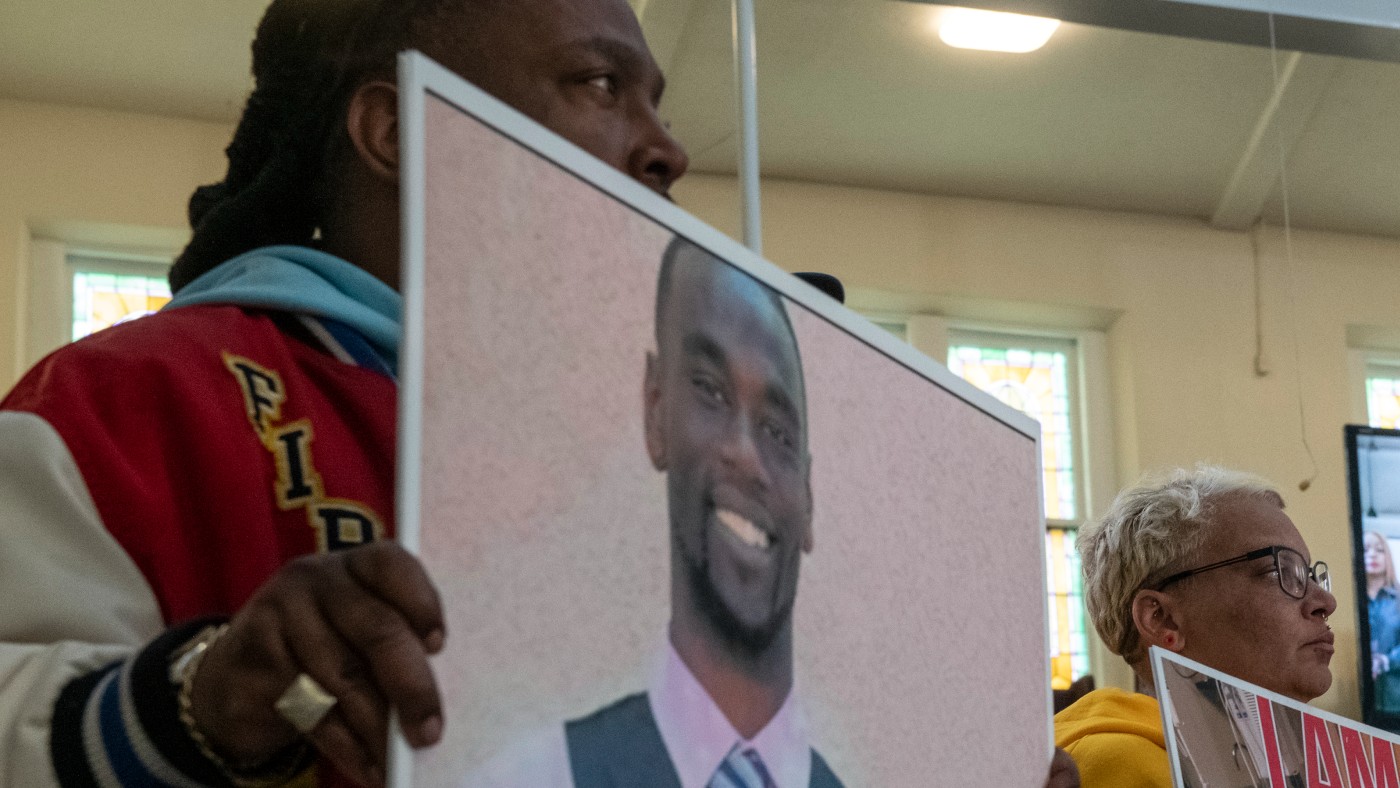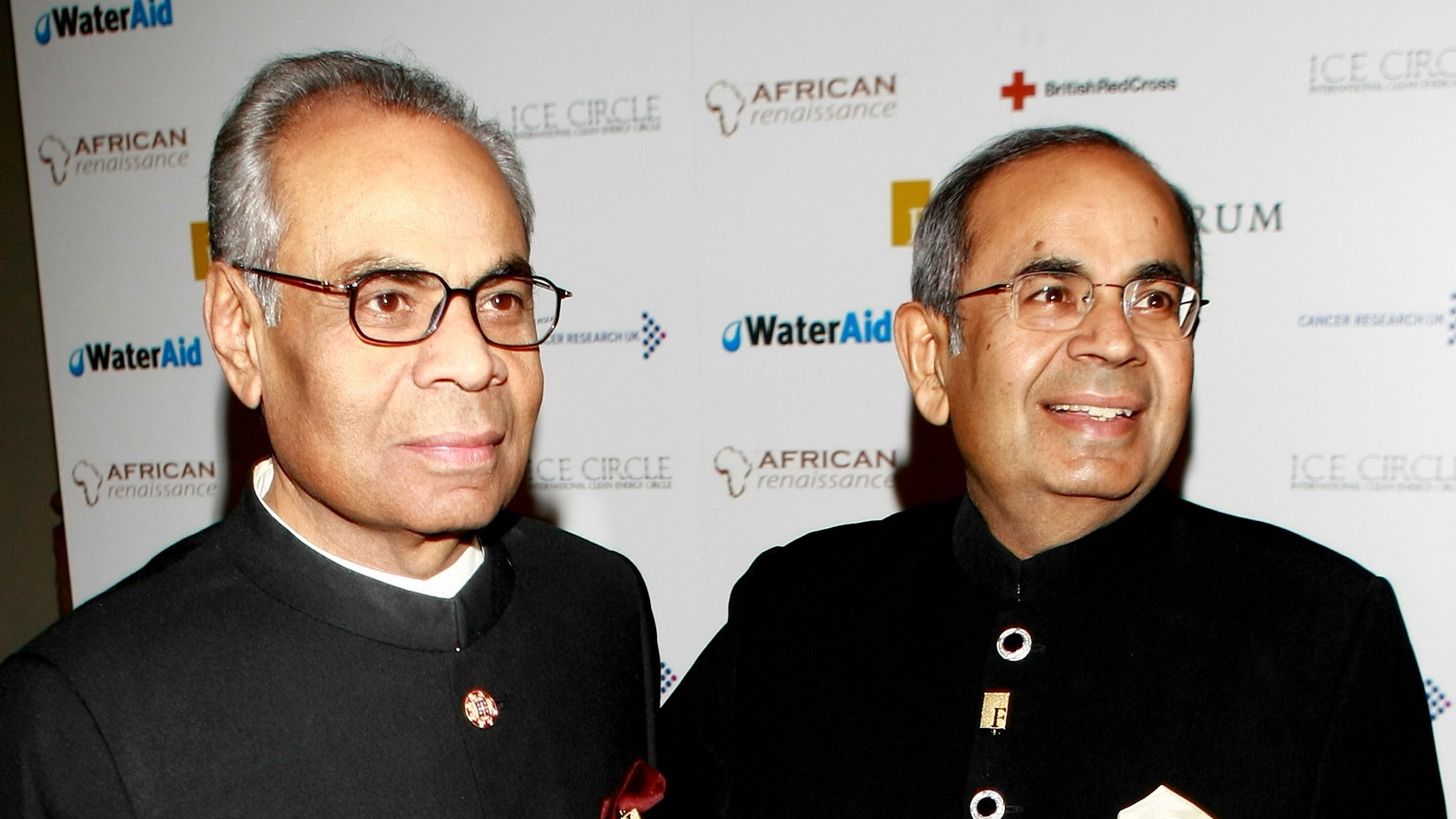Timeline: one year since the death of George Floyd
Police killing of the unarmed African American prompted moment of reckoning for US race relations

A free daily email with the biggest news stories of the day – and the best features from TheWeek.com
You are now subscribed
Your newsletter sign-up was successful
The White House is pushing ahead with a major police reform bill aimed at limiting US police powers despite fierce Republican opposition.
Speaking shortly after former Minneapolis police officer Derek Chauvin was convicted yesterday of the murder of George Floyd, Vice President Kamala Harris said that while “we feel a sigh of relief”, the guilty verdict “cannot take away the pain”.
“A measure of justice isn’t the same as equal justice,” she said in an address from the White House. “This verdict brings us a step closer and, the fact is, we still have work to do. We still must reform the system.”
The Week
Escape your echo chamber. Get the facts behind the news, plus analysis from multiple perspectives.

Sign up for The Week's Free Newsletters
From our morning news briefing to a weekly Good News Newsletter, get the best of The Week delivered directly to your inbox.
From our morning news briefing to a weekly Good News Newsletter, get the best of The Week delivered directly to your inbox.
Harris co-sponsored the George Floyd Justice in Policing Act last year, in the wake of the killing. The legislation cleared the Democrat-held House of Representatives only to be crushed in the Senate.
However, the bill was reintroduced and last month again “passed the Democrat-controlled House of Representatives, but every Republican voted against it”, says The Telegraph.
“In the Senate, which is split 50-50, it would need 60 votes to pass,” the paper continues - a level of support that could prove tricky to muster in the face of the opposition from the Republicans.
If that hurdle can be overcome, the “hotly debated legislation” will make it easier for the public to “successfully sue abusive officers and cut police departments off from the supply of military-grade equipment that they say they need to stay safe”, news and information site Poynter reports.
A free daily email with the biggest news stories of the day – and the best features from TheWeek.com
The policing act also refers to forcing police to undergo training “on racial, religious, and discriminatory profiling”, while banning “chokeholds” and requiring that “deadly force be used only as a last resort and requires officers to employ de-escalation techniques first”.
So-called “no knock” warrants, which allow police to enter a property without alerting the inhabitants first, would also be banned. As The Telegraph notes, a “no knock” warrant was “used before the death of Breonna Taylor last year”.
The bill would also see the introduction of a National Police Misconduct Registry, as well as ending legal protections known as “qualified immunity” for law enforcement.
Joe Biden has “thrown his weight” behind the legislation, the paper adds, with his party pledging to work with Tim Scott, the only black Republican senator, to reach a “compromise” to pave the way for the legislation to pass into law.
While the Chauvin conviction has been welcomed by Democrats, many see it as “no substitute for broader action on police reform”, says The Hill.
The guilty verdict has “raised pressure on Senate Republicans to pass the bill”, the site adds, though “partisan divides” on police reform have “prevented any bills from making it to the president’s desk in recent years”.
-
 The ‘ravenous’ demand for Cornish minerals
The ‘ravenous’ demand for Cornish mineralsUnder the Radar Growing need for critical minerals to power tech has intensified ‘appetite’ for lithium, which could be a ‘huge boon’ for local economy
-
 Why are election experts taking Trump’s midterm threats seriously?
Why are election experts taking Trump’s midterm threats seriously?IN THE SPOTLIGHT As the president muses about polling place deployments and a centralized electoral system aimed at one-party control, lawmakers are taking this administration at its word
-
 ‘Restaurateurs have become millionaires’
‘Restaurateurs have become millionaires’Instant Opinion Opinion, comment and editorials of the day
-
 George Floyd legacy: what has changed in the US three years on
George Floyd legacy: what has changed in the US three years onfeature Police officers are more accountable but has ‘white empathy’ hit a wall?
-
 Why energy firms are sending in bailiffs during cost-of-living crisis
Why energy firms are sending in bailiffs during cost-of-living crisisfeature A Times investigation found that debt collectors had been force-fitting meters in people’s homes
-
 US elite crime-fighting units: a recipe for trouble?
US elite crime-fighting units: a recipe for trouble?feature Tyre Nichols’ death in Memphis highlights the dangers of using of elite crime-fighting units
-
 What happened to Tyre Nichols?
What happened to Tyre Nichols?Speed Read President Biden calls for ‘peaceful protest’ ahead of video release showing Memphis police officers fatally injuring 29-year-old
-
 ‘Police tactics are not getting worse, they are simply being filmed’
‘Police tactics are not getting worse, they are simply being filmed’Instant Opinion Your digest of analysis from the British and international press
-
 A sunshine state of mind: the mass exodus to Florida
A sunshine state of mind: the mass exodus to Floridafeature Could Florida be the new New York?
-
 Who are the UK’s richest people?
Who are the UK’s richest people?feature Anglo-Indian brothers top this year’s list of the country’s billionaires
-
 Does the Highway Code prioritise cyclists?
Does the Highway Code prioritise cyclists?feature Updated code introduces new ‘hierarchy of road users’ that places drivers below pedestrians and cyclists